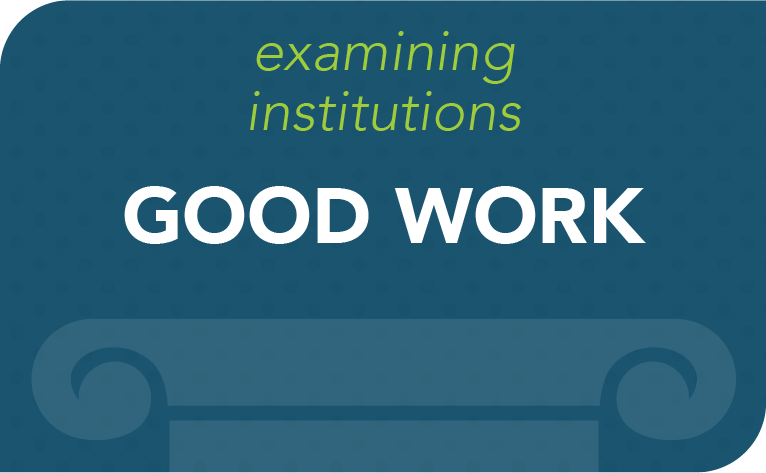
Re-Imagining Tech Fellowship Encourages Engineering and Computer Science Students Toward Moral Purpose in Work
July 2021
This summer, 18 Duke undergraduates pursuing majors in engineering or computer science are exploring the ways moral purpose and character are central to what it means to do good work in technical fields. The Re-Imagining Tech Fellowship includes weekly meetings with readings, speakers and activities that confront the idea that engineers and computer scientists are neutral, and encourages students to think of themselves as moral agents who share responsibility for the implications of their innovations.
“As engineers and computer scientists, we’re increasingly challenged with problems that have ramifications far outside our discipline, and I think it’s critical that we equip ourselves to meet them,” said Megan Richards, a rising senior who is studying Electrical and Computer Engineering with a concentration in machine learning and a Science & Society certificate in Digital Intelligence. “ReTech is such a unique program because it puts us face to face (virtually) with such a broad range of expert stakeholders — lawyers, technologists, researchers, industry designers, advocacy organizers — learning from people who have both experienced these issues as they’ve developed, and are leaders in shaping the solutions.”
Students like Megan are participating in ReTech one evening per week alongside their summer internships.
During a recent session, fellows considered issues around facial recognition technologies. They were instructed to gather make up, fabrics and other household materials before the session, and then an expert in the facial detection resistance movement led an activity where students used the materials to create custom looks that undermine common facial detection systems. This hands-on experience accompanied a discussion of facial recognition technology’s history and current uses, as well as its civil liberties implications and disparate impact on marginalized communities.
“This program is really designed to help students understand the consequences, both intended and unanticipated, that their work as computer scientists and engineers can have for individuals and society, and to encourage thoughtful analysis of the ethical implications of that work — whether it is designing a medical device, developing software, creating an app or building a smart city,” said Jolynn Dellinger, Program Director for ReTech, Kenan Senior Fellow, and Senior Lecturing Fellow at Duke Law School. “We are also talking about these issues in the context of employment, exploring strategies to find work that aligns with personal values, to raise and talk about ethical concerns at work, to avoid harm, and to work for good.”
Each fellow is paired with a mentor for virtual conversations throughout the summer, giving fellows the opportunity to discuss issues with someone in their particular field.
“My mentor, who happens to work at the same company, has been beneficial in helping me adjust to my first internship and evaluate the actions and structure of Big Tech corporations,” said Major Glenn, a rising sophomore who is interested in computer science and mathematics.
ReTech is part of The Purpose Project at Duke, which seeks to make questions of moral purpose and character central to a Duke education. The Purpose Project encourages students to view the civic, moral, and intellectual virtues as central to a meaningful life, and to apply practical wisdom to the work they pursue within a given field. For engineering and computer science students, that means considering the myriad ways technologies are being developed and used throughout society.
“The breadth of topics we have explored so far, from novel software and social media to humanitarian engineering, has shifted my definition of technology,” said Glenn. “Rather than viewing ethics as a valuable tool to be integrated into technology, I now view technology as a people-driven practice fundamentally dependent on ethics.”
As Megan Richards starts her senior year and considers life after graduation, she appreciates the way the summer fellowship has given her a broader sense of what it means to pursue meaningful work. “ReTech has pushed me to challenge my assumptions and to reexamine the role and skills I want to leverage toward making technology safer, more inclusive, and more equitable.”
ReTech is co-sponsored by the Kenan Institute for Ethics, Trinity College, and Pratt School of Engineering as part of The Purpose Project at Duke.





